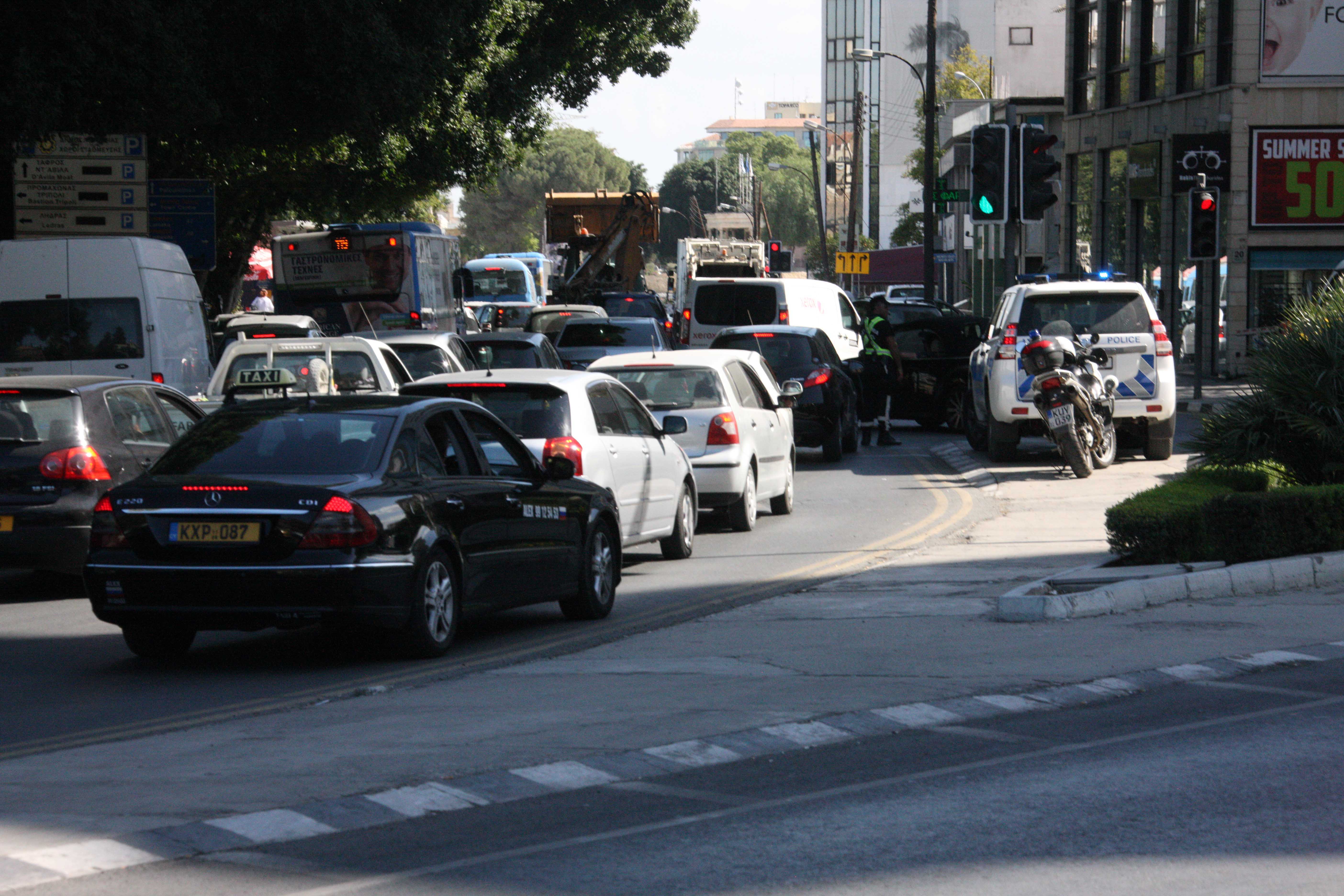The long-awaited study into how the sclerotic traffic congestion can be resolved was finally delivered, although any potential solutions appear to be a long way off.
In short, it found that shifting school hours will not do much to solve the problem but some civil servants altering their timetable would have a greater impact.
Changes to the private sector working hours was found not to be a viable option, although shifting the time of deliveries to shop and businesses would be beneficial.
The results of the study – which focused on Nicosia – were submitted to the House transport committee last week. MPs heard that about 90 per cent of travel takes place with cars which is compounded by just 1.2 passengers per vehicle.
Only three per cent use buses, and it simply stated that travel on foot or by bicycle is particularly low.
The study, seen by Politis, noted that the peak rush hours are between 7am-9am although traffic remains constant throughout and until 6pm.
Specifically, however, the study pointed out that 12 per cent of Nicosia’s workforce is comprised of state services employees who are typically grouped and organised into specific offices.
It means, the researchers reasoned, that staggered (rolling) work schedules in the public sector would be easier to achieve and more effective.
Many such civil servants work in centrally located offices such as at ministries, meaning that many workers are all headed in one direction all at once; causing intense congestion at the entry points to the city.
On the other hand, it stated that those working in the security, defence and health sectors account for 30 per cent of Nicosia’s civil servants (over four per cent of the capital’s workforce). Notably, however, they typically work different shifts including at night and therefore do not contribute as much to the traffic problems.
The study outlined five scenarios, ranging from the lower end to the ideal end of how many civil servants would shift their timetable.
It went from scenario A (1,500), to B (2,500) – viewed as the most realistic – to C (3,500), D (5,000) and E (7,000); seen as ideal.
It suggested that the impact across that range would be from three per cent reduced traffic in scenario A up to a 13 per cent reduction in scenario E.
The researchers reasoned that tweaking private sector employees’ timetables is unfeasible as 95 per cent of the 43,000 businesses in Nicosia are very small – making an organised shift challenging.
Larger companies, such as the Big Four of accounting, already have flexible schedules which include hybrid work (remote working).
The transport ministry has been facing mounting pressure to solve the chronic traffic complications plaguing those primarily in Nicosia and Limassol, while also implementing the EU-funded changes to urban mobility.







Click here to change your cookie preferences